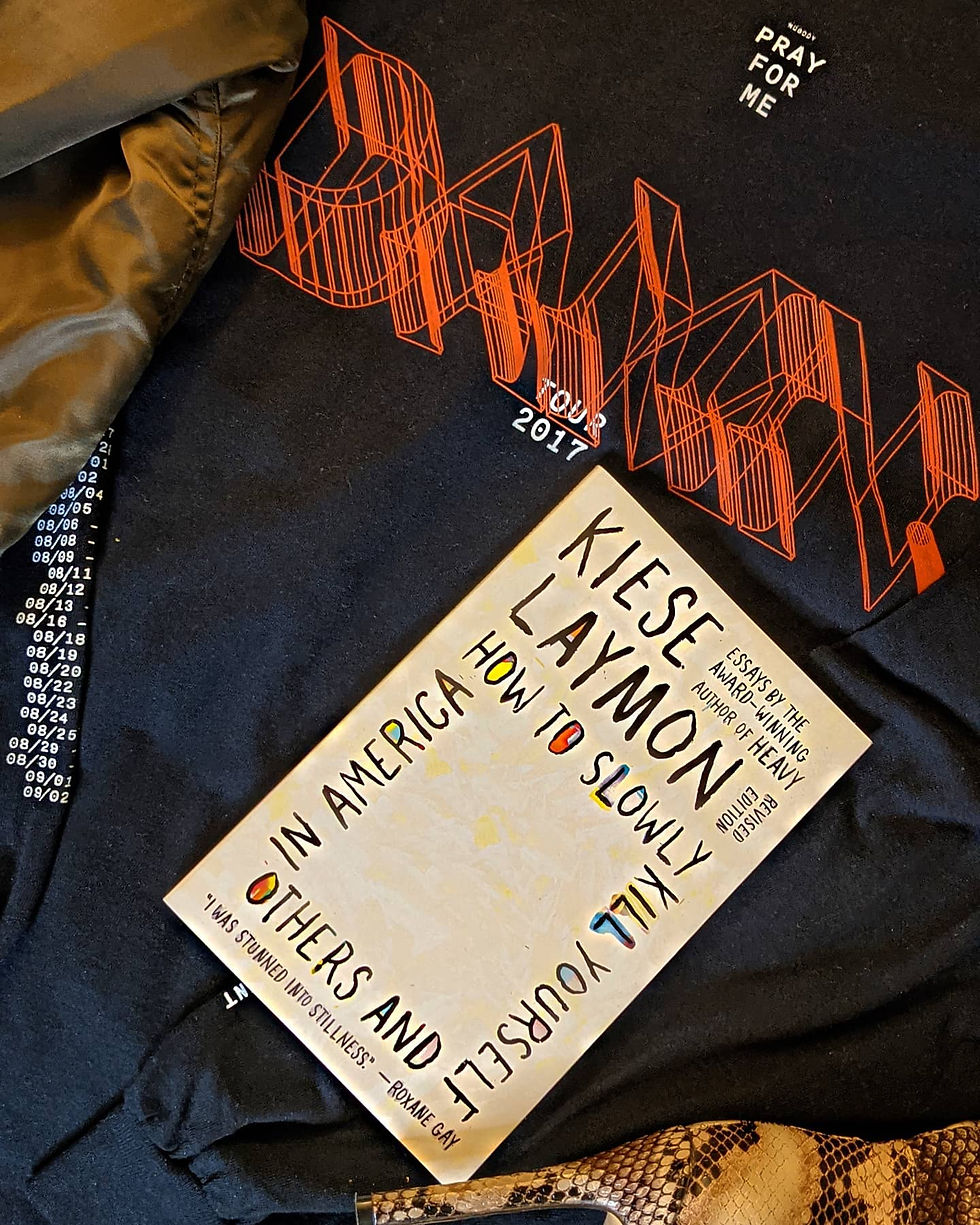How to Slowly Kill Yourself and Others in America By Kiese Laymon
- Evangeline Lawson
- Feb 11, 2021
- 2 min read

"We Black Southerners, through life, love, and labor, are generators and architects of American music, narrative, language, capital, and morality. That belongs to us. Take away all those stolen West African girls and boys forced to find an oral culture to express, resist, and signify in the South, and we have no rich American Idiom. Erase Nigger Jim from our literary imagination and we have no American story of conflicted movement, place, and moral conundrum. Eliminate the Great Migration of Southern Black girls and boys and you have no Los Angeles, Chicago, Detroit, Indianapolis, Cleveland, or New York City. Expunge the sorrow songs, gospel, and blues of the Deep South and we have no rock and roll, rhythm and blues, funk, or hip-hop." - Kiese Laymon, "Hip-Hop Stole My Southern Black Boy" from How to Kill Yourself and Others in America
Similarly to James Baldwin's discussion of protest novels and film, Kiese Laymon uses his essay on Hip-Hop as an examination of his own identity. He personalized it, but linked his ideas to the bigger implications for Black people as a community, when we split hairs over what should be deemed cultural markers of a movement. In the internal debate of what truly defines Hip-Hop and can it truly earn respect outside of the boundaries of New York City, Laymon found a deeper connection to his Southern roots and it's significance in the culture as a whole.
I loved this essay in particular for those of us who may not always fit into the paradigm of things we love. Especially when they are definers of the culture. Additionally, the way Laymon crafted the story to support his internal conflict made it both engaging and enlightening, but rewarding to read that through reflection, he walked away with a deeper appreciation for who he is and his importance to the culture; not just as a bystander, but an active contributor to reframing the narrative.





Comments